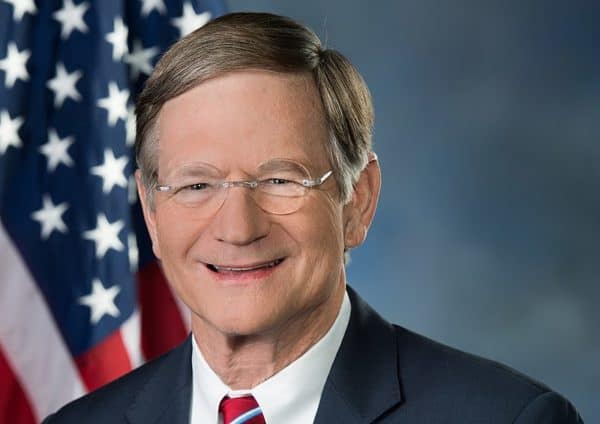What Beltway Conservatives Say About Immigration
Jared Taylor, American Renaissance, March 2002

On January 29, a group of mainstream, self-styled “conservatives” met in Washington, DC, to present a series of panels under the general rubric, “Immigration and National Security — Post 9/11/2001.” The meeting was sponsored by David Horowitz, ex-communist and current president of the Center for the Study of Popular Culture. The panels were an instructive indicator — sometimes encouraging, sometimes not — of how far “conservatives” are prepared to go in opposing the come-one-come-all orthodoxy.
This orthodoxy is so firmly rooted that nearly every one of the dozen or so speakers felt obliged to genuflect before the idea that America is a polyglot wonder, vastly enriched by newcomers from all parts of the world. America, they told us, is unlike other countries. Foreigners cannot go to France and become Frenchmen, but anyone can become an American. Needless to say, no one was prepared even to hint at the association between race and nationhood. Having therefore accepted the premises of their opponents, these “conservatives” mainly want to devise methods to keep out terrorists, and some even flirted with the idea of keeping all Muslims out of the country. Some realize that admitting large numbers of immigrants poses more than just security problems, but the primary refrain was the need to cut down on the intake and do a better job of assimilation.
The first speaker was Edwin Meese, US Attorney General under President Ronald Reagan. After reminding us “we are a nation of immigrants,” and that our democracy does not permit racial profiling, his main concern was what to do about immigrants in time of war. He pointed out that during past wars, foreigners have been subject to special scrutiny. He expressed revulsion for the Asian exclusion zones and relocation camps of the Second World War, but said there was good reason to register aliens. He called for a massive database of all the world’s potential bad guys, to be used by police and the visa-granting arm of the State Department. This could be combined with a much better system of tracking foreigners so we can be sure who hasn’t left the country when he should.
Mr. Meese also said we need “biometric documents,” or fool-proof identity papers based on biological characteristics. There is much resistance to the use of a national ID but he suggested we now have a de facto national ID, in the form of state drivers’ licenses. He said there should be more uniformity in licenses and that they should be made impossible to counterfeit. He also said employers and universities that apply for visas and sponsor immigrants must be made to keep tabs on people they have brought over, and certify that visa terms are not being violated. He opposes California’s recent decision to let illegals pay in-state tuition at universities, and thinks colleges should be punished for knowingly accepting illegal aliens.

President Reagan sitting at desk meeting with Edwin Meese in the Oval Office in October of 1981.
Mr. Meese appeared to have no quarrel with legal immigration, opposing only illegal immigrants, criminals, and terrorists — precisely the point of view of an attorney general. The measures he recommended would make it easier to keep tabs on foreigners, and — if the country took them seriously — sniff out illegals. However, Mr. Meese never talked about immigration in general or the need to establish criteria for admission. He even concluded by saying that although immigration was now a matter of national security, we must not let policy be hijacked by people who have “a warped notion of what the country should look like.”
I asked Mr. Meese why we ban weapons exports to China but permit more than 50,000 Chinese to study at American universities, where they can learn enough aeronautics and nuclear physics to invent what we won’t sell them. He said the students will go home and liberalize China, but that it still might make sense to keep them out of advanced degrees in certain sensitive disciplines.
A panel on borders and citizenship brought the only really lively exchange of opinions. Michael Barone, who writes for U.S. News and World Report, claimed immigration is “more of an opportunity for us than a problem,” arguing only that it might be good to promote more of a sense of common citizenship. “As a practical matter,” he said, “immigration cannot be stopped,” adding that it naturally adjusts itself to the demands of the American labor market and that it would be “economically disastrous” to stop it. He did endorse a policy of “zero visas for certain Middle-East countries,” but assured us Mexican prune-pickers are an asset to the country. He thinks the current level of about a million immigrants a year is fine and is convinced “we can interweave immigrants into the fabric of American society,” if we teach them English and give them civics classes.

Michael Barone (Credit Image: Gage Skidmore / Wikimedia)
He sees no threat in the Mexican Reconquista movement, claiming it is nothing more than a few lefty college professors with no constituency. He applauded Mexico’s 1998 decision to permit dual nationality, saying America and Mexico should have a “benign competition” of citizenship that would let Mexicans live in whichever country they found congenial. In any case, so long as we successfully stimulate growth and stability in the hemisphere, we can turn Mexico and Guatemala into such happy places no one will want to leave. He hardly seemed to belong at a conference that was billed as a conservative appraisal of immigration.
Mr. Barone was immediately followed by John Fonte of the Hudson Institute, who blasted just about everything Mr. Barone had said. He scorned the idea of dual citizenship, pointing out that the oath of naturalization rightly requires renunciation of competing loyalties. He said last year three naturalized American citizens ran in elections for mayor of various Mexican cities, and called this an insult to American citizenship. He said that the more education Mexican-Americans get the less American they reportedly feel, and that immigration has been good for the United States only to the extent that immigrants have assimilated. He said learning English and holding a job are not enough, and that without “patriotic assimilation” we risk balkanization. He did not mouth sentimental platitudes about immigration, instead asserting that “the principle goal of immigration policy should be the national interests of the United States.” Mr. Fonte, who called for a sharp reduction in immigration of all kinds, was one of the strongest restrictionists on the program, and gave the impression he might veer into outright thought crime in private.
During the question period, I congratulated Mr. Fonte on his demolition of Mr. Barone, pointing out that the presence of 15 million Mexicans means it is probably impossible seriously to assert our national interests against Mexico. I predicted that if there were ever a sharp conflict with Mexico, there would be no question of “benign competition” for loyalty; millions of American citizens would act like patriotic Mexicans. I also pointed out that although the panel was about citizenship, no one had mentioned birthright citizenship. Columnist Georgie Anne Geyer, who moderated the panel, agreed this was an awful thing, and pointed out that huge numbers of pregnant illegals come to America specifically to produce citizens.
In separate remarks Miss Geyer also noted that labor productivity in America has stagnated because of so much cheap, immigrant labor. Mr. Barone scoffed at this, asking “Do you want everyone in the country to be an investment banker?” Miss Geyer also worries about Muslim immigrants, claiming that although she has spent a great deal of time in the Middle-East, she has never met a Muslim who believed in separation of church and state. She said she worries that although people claim “everything has changed” since Sept. 11, if we do not seize this opportunity to change immigration policy we will soon find nothing has changed.

Sam Francis
Syndicated columnist Samuel Francis was in the audience and wanted to know whether any of the speakers who had spoken about assimilation had a definition for it. Mr. Barone answered glibly that it is like pornography: he knows it when he sees it. Mr. Fonte gave a serious answer, saying that someone is assimilated “when he adopts the American story as his own.” He offered a specific test: whether a newcomer saw the Mexican-American war as a conflict “our” side won, and not as something dead white people did to Mexicans. By this test, the huge majority of Hispanics can never be assimilated. In fact, many blacks could not be considered assimilated, since many think of themselves as largely outside “the American story.”
Another panel included Mark Krikorian, Executive Director of the Center for Immigration Studies, a Washington think tank that issues useful reports on such things as dual citizenship, and the economic status of immigrants. He has been arguing for years for reduced legal immigration, and has recently added national security to the reasons for reduction. He said if we are to take seriously the idea of screening out terrorists we have no choice but to reduce the number of people we admit so we can examine them adequately. He pointed out that the Immigration and Naturalization Service has a backlog of about five million applications of various kinds and needs “breathing room.” Reducing the flow would also help solve such problems as multiculturalism and the demand for bilingual education. He also noted that the presence of large communities of immigrants makes it easy for terrorists to blend in. In particular, he argued that “the insularity of the Muslim communities provides cover for terrorists.”
He said that when immigration was reduced in the 1920s, fewer Italians came, which meant the Italians already here were more likely to assimilate. The Mafia was starved of recruits, its members become Americanized, and the mob was easier to crack. He said there would be a temptation to keep out Muslims for similar reasons, but that this might be unconstitutional and was, moreover, a throwback to the dreaded national origins quotas of times past.
In the question period I pointed out that the country had national origins quotas until 1965 and that if they had not been dismantled we would have none of the problems of which Mr. Krikorian complained: multiculturalism, bilingual education, and isolated enclaves of foreigners in which terrorists hide. I also asked why it is wrong for a nation to preserve its cultural, linguistic, religious, and even racial heritage. Virtually every other country does it; why not the United States?
Mr. Krikorian replied that the 1924 immigration restrictions had a good effect for the wrong reasons. He said — incorrectly — that much consideration of head shape, Nordicism, etc., went into the laws, and that this was an improper basis for policies that nevertheless made it possible to assimilate the turn-of-the-century immigrants. He did not explain why it is wrong for a country to preserve its racial makeup.
Daniel Pipes, who heads the Middle East Forum and is a columnist for The Jerusalem Post, had only one message: “Militant Islam has declared war on the United States.” Although he did not tell us how to distinguish between militants and moderates, he wants the militants out. He called for a new version of the McCarren-Walters Act that used to keep communists out of the country, and that would establish new ideological filters to keep out today’s enemies.
On the same panel was Grover Norquist, who has been a long-time Republican activist and is president of Americans for Tax Reform. He said he didn’t care for bilingualism or multiculturalism, but that these could be easily done away with through education. If schools would only teach patriotism, anyone could be made into a perfect little American. He said Republicans must shed their image as the white man’s party, and cultivate immigrants and non-whites.

Grover Norquist (Credit Image: Gage Skidmore / Wikimedia)
He also stressed the importance of cozying up to “new communities of faith,” which presumably include Muslims and practitioners of Voodoo and Santeria. He grew practically teary-eyed in his evocation of an America in which the national essence — whatever that may be — is divorced from race, language, or religion. He sees nothing wrong with either the current levels of immigration or the mix of immigrants, and it was hard to understand why he was on a panel of “conservatives.”
David Keene, who is best known as the sponsor of the annual C-PAC gathering of conservatives, gave a reasonably good overview of the effects of the 1965 immigration law. He reminded us that its sponsors promised it would neither increase the rate of immigration nor change the ethnic mix of the country. He said we would have few immigration-related problems if we had maintained the pre-1965 rates of 300,000 or so rather than trying to stuff 1,000,000 new people into the country every year. He said the country is being balkanized by immigrants who seem to have little desire to assimilate, and who are poorer and less educated than natives. He added that it makes no sense for 70 percent of all legal immigrants to be coming for family reunification rather than because we want them. He said the basic questions should be: How many people do we need, whom do we want, and do they become Americans? It was about as strong a call for restriction as the meeting managed to produce, and was a good introduction for the two other panelists, Congressmen Thomas Tancredo and Lamar Smith.
Both these men take it for granted we are accepting far too many legal immigrants and are doing a pitiful job enforcing immigration laws. They concentrated instead on practical questions of how to build an infrastructure actually to carry out whatever immigration policy the country adopts. Mr. Tancredo (R-Colorado), said it was vital to split the INS into two organizations with separate functions: border control and naturalization. He said the naturalization ethos pervades the agency, and that people with an “immigration social worker” mentality cannot deal vigorously with illegals. He has sponsored legislation to establish a new National Border Security Agency, to be run by flinty-eyed men whose job it would be to keep illegals out. The “immigration social workers” who think foreigners are customers to be served could be hived off in a separate naturalization agency. He reported that Governor Thomas Ridge, now in charge of homeland security, had already made such a proposal to the President, but turf-hungry INS officials shrieked, and nothing came of it.

Tom Tancredo (Credit Image: IowaPolitics.com / Wikimedia)
Mr. Tancredo emphasized that it was all very well to discourse sagely about who we should let in, but it is only hot air unless there is well-oiled machinery to enforce the law. He added that the events of Sept. 11, in which every one of the 19 terrorists entered the country legally, will force Congress to pass legislation that will be touted as the final solution to terrorism. It will, he promised, be a joke. It may sound good, but there will be no real provisions for accomplishing whatever the bill calls for. He said the goal of border control should be to monitor every single crossing, and to know immediately if someone overstays his visa.
Mr. Tancredo said the reason we are unable to enforce laws we already have is that many congressmen seem to believe America should have no borders at all. He says he would love to force a serious floor debate that would put every congressman on record as to whether he thinks national borders should be lines on maps or real bulwarks of national sovereignty. Mr. Tancredo is clearly committed to reducing legal immigration and cracking down on illegals. He is probably the most outspoken and effective restrictionist on Capitol Hill.
Lamar Smith of Texas certainly comes close. He echoed many of Mr. Tancredo’s remarks, once again emphasizing the importance of the practical, law-enforcement aspects of controlling borders. He said he had predicted years ago that something like the Sept. 11 attacks was inevitable if we did not watch the borders. These events have demonstrated what he has said for years, that “immigration is a public safety issue.” He has no patience for police departments that refuse to cooperate with the INS, and expects that the attacks will cut down on this foolishness.
Mr. Smith was sound on larger issues. He pointed out there is a “great mismatch” between the people who are coming to this country and the people the economy needs. Ninety percent of all new jobs, he said, will require a college education, yet huge numbers of immigrants have “no visible education,” and immigrants are twice as likely as natives to be on welfare. He said there should be no sentimentalism about immigration, that it should be exclusively in the interests of the country, and that we have every right to set high admission standards for newcomers.

Congressman Lamar Smith
He, too, thought the INS has fallen into the hands of the “social workers,” and does not have the will to control borders or hunt illegals. He said the Clinton people, who fully understood that immigrants vote Democratic, were largely responsible for this. Like Mr. Tancredo, he wants the INS split into separate enforcement and naturalization agencies, with the functions of the Coast Guard and Customs Service included in the enforcement arm. This way, the people whose job it is to keep things out — whether drugs, Cuban cigars, or people — would all work for the same agency.
Most of the panelists at this conference, with the exception of mistakes like Grover Norquist and Michael Barone, seem to realize that massive, Third-World immigration is not just an immediate security threat to the country. They realize we are importing indigent, uneducated people, many of whom have no desire to become American in any meaningful way. Though not quite so clearly as Patrick Buchanan, they understand there are limits to our ability to assimilate strangers, and that after their numbers reach a critical mass, they demand that we assimilate to them rather than vice versa. To the degree that they understand this, and to the extent they are willing to think seriously about setting criteria for admission or naturalization, they must realize that race is often an insuperable barrier to assimilation. Nevertheless, the speakers are all ambitious men who would never adopt a position they know might force them out of polite society or from the halls of power. Whether they have succeeded in convincing themselves that the racial taboo is legitimate — that whites have no right to maintain a majority-white country — or whether they keep their convictions out of sight, “mainstream” conservatism is defined by its compulsion to adopt positions on race that were revolutionary only 40 years ago.
This, of course, is why no one like Samuel Francis, Wayne Lutton, John Vincent or anyone associated with American Renaissance was invited to speak. Within the bounds of “conservatism” we find the Grover Norquist view that current levels of immigration are just fine and that all that is needed is a little more assimilationist effort on our part. That nationhood might have biological roots, that patriotic attachment requires ties of blood — though obvious to any student of history or world events — are ideas not even to be considered. There is less justification for not inviting Dan Stein of FAIR, Roy Beck of Numbers USA, Reed Irvine of Accuracy in Media, Glenn Spencer of Voices of Citizens Together, or even Peter Brimelow of the VDARE web page. All these men would have made strong restrictionist arguments within the artificial limits set by David Horowitz conception of conservatism. Mr. Beck would have been a particularly useful addition to the program, since not one speaker brought up the immigration-driven problems of population growth, urban sprawl, or dependence on imported resources. From a narrowly Republican point of view, these may be mistakenly seen as “liberal” arguments, but they find deep resonance across the political spectrum.
This is not to say men like John Fonte or Tom Tancredo are not doing useful work. They may yet be able to moderate an immigration policy that is choking off the civilization of our ancestors, and orthodoxy is so pervasive they might be less effective if they departed from it more sharply. As Mr. Krikorian said in his reply to my question, sometimes one may approve of the effects of legislation but disapprove of its motives. It may be that restrictive legislation can be passed only by invoking the plight of Mexicans and Haitians who need a chance to “adopt the American story as their own,” free from the anti-assimilationist influence of waves of untamed compatriots. This would be vastly better than nothing.
This conference was probably a representative sample of mainstream “conservative” restrictionist sentiment. Until more vigorous nationalism forces itself up from the grassroots, it was about as much as we can expect.















